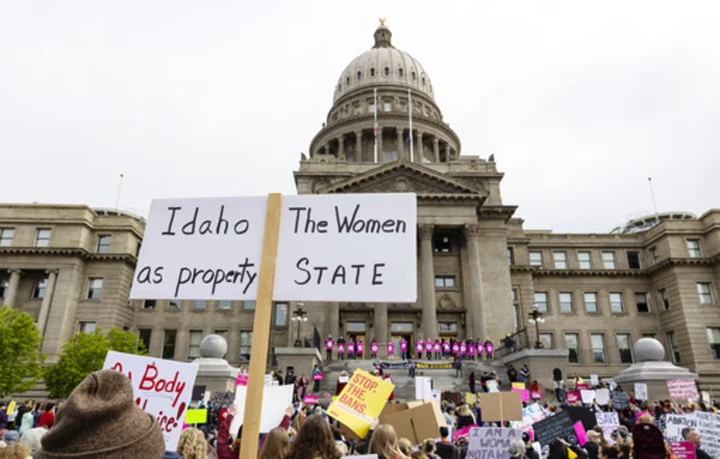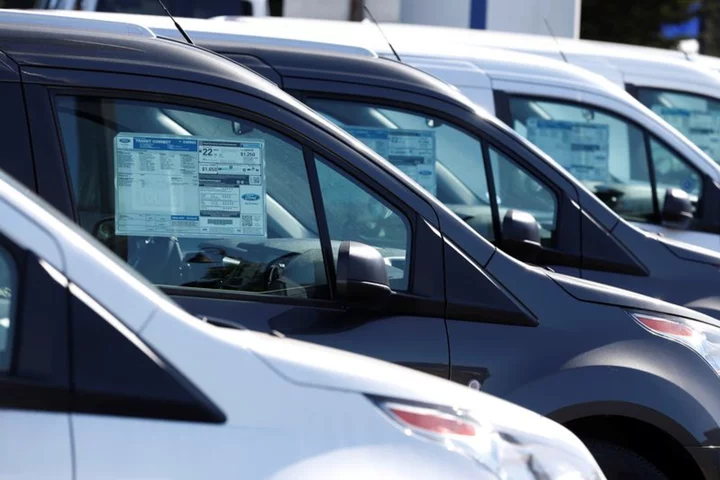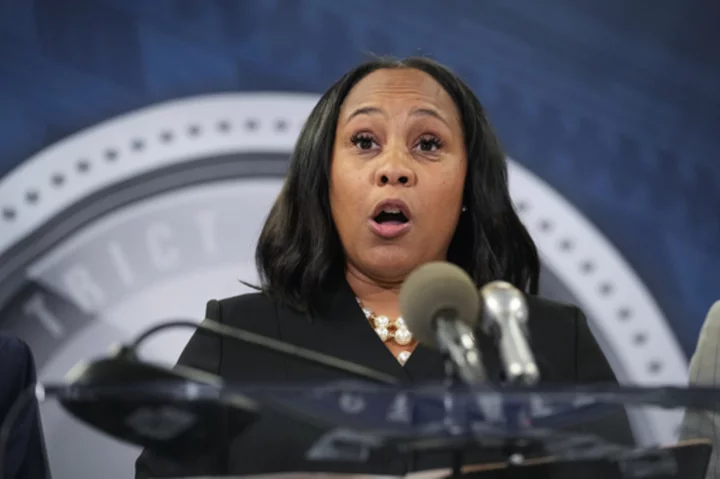BOISE, Idaho (AP) — Two advocacy groups and an attorney who works with sexual assault victims are suing Idaho over a new law that makes it illegal to help minors get an abortion without their parents’ consent.
Abortion is already banned in Idaho at all stages of pregnancy. But the law enacted in May -- dubbed a “travel ban” by the advocacy groups and an “abortion trafficking ban” by the lawmakers who passed it -- seeks to prevent minors who don’t have parental approval from getting abortions in states where the procedure is legal. Violating the law is a felony, punishable by at least two and up to five years in prison.
The Legal Voice activist group filed the lawsuit in federal court Tuesday on behalf of Nampa attorney Lourdes Matsumoto, the Northwest Abortion Access Fund, and the Indigenous Idaho Alliance. All of the plaintiffs work with and sometimes assist minors who are seeking abortions, and they want to continue that work without the threat of prosecution.
They contend the law is overly vague and violates both their First Amendment right to discuss abortion with minors and their Fourth Amendment right to travel freely between states.
“Ignoring that some of the minors may seek an abortion because they were sexually abused by a parent or guardian, that they have consulted with trusted adults who support their position, or that they are actual victims of human trafficking,” the Legislature instead tried to stop pregnant minors from crossing state lines for care, the plaintiffs wrote in the lawsuit.
Idaho Attorney General Raul Labrador's office declined to comment on the case because it is still pending. But spokeswoman Emily Kleinworth wrote in an email that the office is always prepared to vigorously defend laws passed by the Legislature.
Labrador has previously said that his office has the ability to charge people with violating the law even in cases where the local prosecutor, who would normally handle such decisions, declines to prosecute.
In the lawsuit, Matsumoto and the advocacy groups call Idaho's abortion laws “draconian” and “the worst in the nation.” The ban on helping minors obtain abortions is poorly written and infringes on the right to talk about and fund a minor's abortion, they contend.
Matsumoto, who works with survivors of domestic and sexual abuse, said she would like to help her minor clients obtain abortions if they choose, but she’s not sure exactly what type of conduct would violate the law.
“The law is so uncertain that Plaintiffs cannot tell if it is criminal to operate a motor vehicle on the streets and highways of Idaho because a pregnant minor is in the car,” Matsumoto's attorneys wrote in the lawsuit.
Abortion remains legal in the neighboring states of Washington, where no parental consent is required, and Oregon, where people over age 15 can get abortions without parental consent.
Even before abortion was criminalized in Idaho, some residents traveled to neighboring states for the procedure just because that was the closest clinic. But in the year since the U.S. Supreme Court overturned the landmark abortion rights ruling in Roe v. Wade, the states surrounding Idaho saw a significant increase in abortions, including almost 1,500 in Washington, more than 1,300 in Oregon and nearly 2,600 in Nevada, according to data from the Society of Family Planning.
The Idaho law attempts to sidestep violating a constitutional right to travel between states by making illegal only the portion of the trip that takes place in Idaho. Another clause of the Constitution requires states to respect the laws of other states, and yet another restricts the ability of the states to impair interstate commerce.
Idaho's law is also structured as an “affirmative defense” statute, which means anyone who helps a minor that is not their own child arrange an abortion can be charged with a felony, but they can later attempt to defend themselves in court by proving that the minor had parental permission for the trip.
Last year, the Northwest Abortion Access Fund assisted 166 Idaho residents, including some minors, obtain abortion care, according to the lawsuit. Now the organization is worried its staffers and volunteers could be subjected to prosecution if they continue those efforts.
The Indigenous Idaho Alliance has also helped adults and minors facing unwanted pregnancies obtain abortions. In some of those cases, the pregnant person was sexually abused by a close family member, a law enforcement officer or another person in an authority position, making it unsafe to involve a parent, according to the lawsuit.
“Although many minors faced with an unintended pregnancy choose to involve their parents, many do not,” the groups wrote in the lawsuit. “There are minors who cannot or do not have access to their parents. There are minors who are afraid to anger or disappoint their parents, as well as those who face the threat of violence in their homes.”
Many minors seeking abortions have to rely on an adult to drive them to another state. Even in the most populated part of the state, there are no public transportation options to travel the roughly 56 miles (90 kilometers) from Boise to the closest abortion provider in Ontario, Oregon, according to the lawsuit.
Matsumoto and the advocacy groups are asking a judge to declare the law unconstitutional and bar the state from enforcing it.









